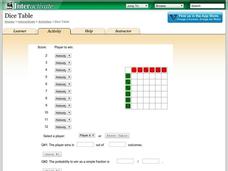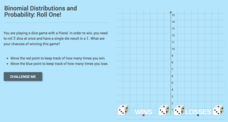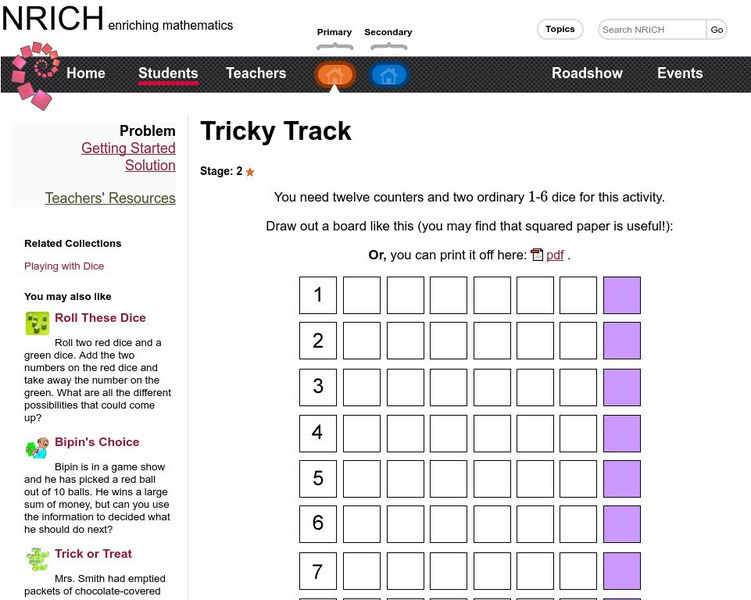CK-12 Foundation
Discrete Random Variables: Roll the Dice!
And the winner is ... not always who it appears to be. An interactive gives the directions for a dice game that on the surface gives one player an advantage over the other. Pupils look closer at the possible outcomes and find the...
CK-12 Foundation
Expected Value: Creating a Discrete Probability Distribution Table
Wanna roll the dice? Determine whether it is a good idea to play a dice game. An interactive presents the rules for a game of dice. Pupils find the probabilities of each event and calculate the expected value of the game. They finish...
Shodor Education Foundation
Dice Table
Convert a table to probabilities. Pupils set up the winning rules for the sums of two dice. Using the rules, the applet fills out a table showing the winners for each combination. Learners determine the probabilities of winning for each...
CK-12 Foundation
Binomial Distributions and Probability: Roll One!
It takes exactly one to win. Pupils calculate the probability of rolling five dice and having only a single die come up with a one. Learners calculate the number of expected wins out of a series of games. The interactive provides...
Shodor Education Foundation
Crazy Choices Game
Wanna take a chance on which game is best? The resource provides three games of chance using multiple types of games. Games range from coin toss to cards. Choosing a type of game, pupils determine what wins and enter the theoretical...
Shodor Education Foundation
Racing Game with One Die
Pupils roll a die to figure out which car advances on a race track. They determine the rules for each car moving forward and, given the statistics of the winner, compare if it matches their predictions.
University of Cambridge
University of Cambridge: Nrich: Tricky Track Game
The directions on this site are for an interesting, two-player dice game named Tricky Track. Grab a partner and play. Do your results surprise you?
Shodor Education Foundation
Shodor Interactivate: Racing Game With Two Dice
Simulate a game where "N" players roll two dice, and the lucky player has an advantage for reaching the finish.
Shodor Education Foundation
Shodor Interactivate: Crazy Choices Game
Compare theoretical and experimental probabilities, using dice, cards, spinners, or coin tosses. Three different probabilities can be compared at once.
US Department of Education
Nces: Kids' Zone: Chances
Dice game allows you to see how increasing or decreasing the number of dice rolls affects an outcome.







